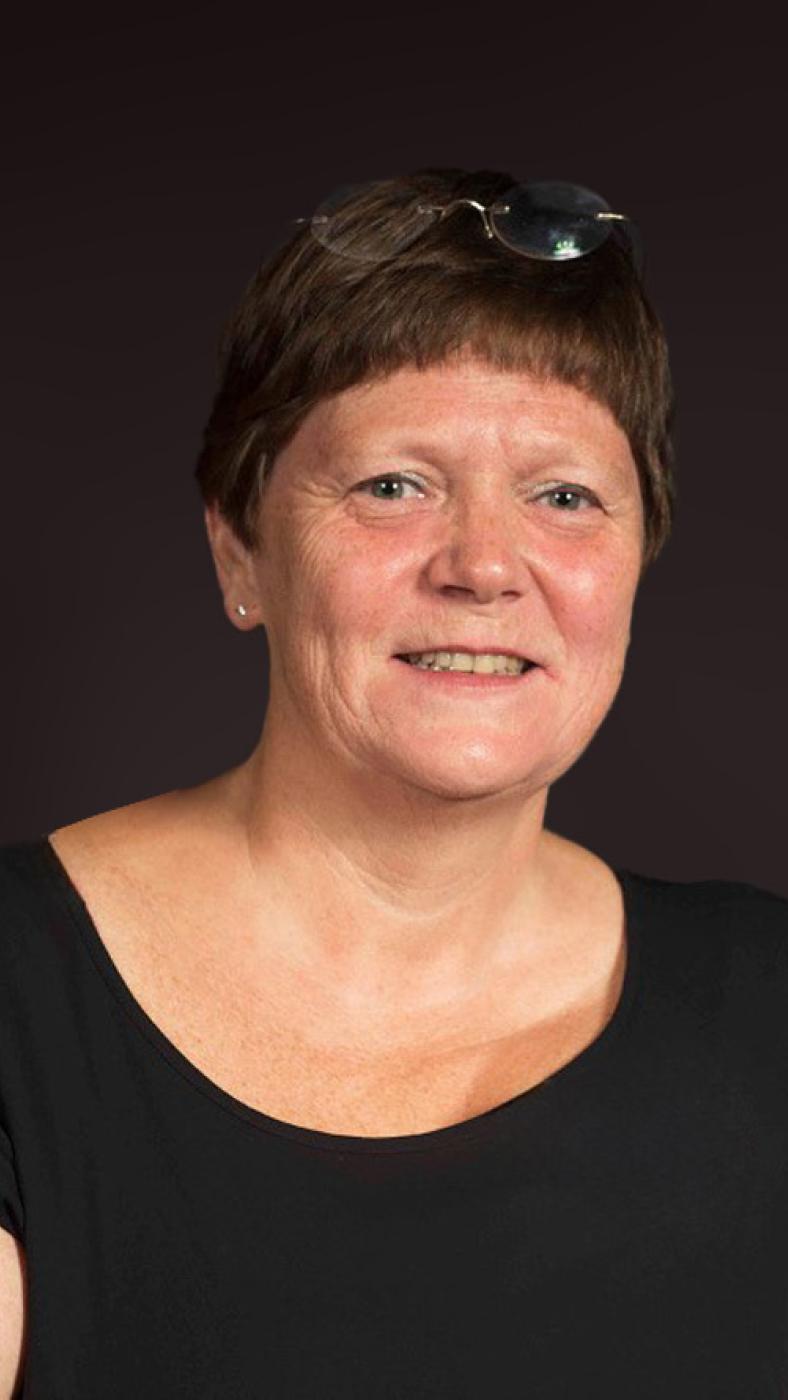
Many women, as well as many doctors, are reluctant to choose or prescribe hormone therapy to treat the symptoms of the menopause. However, in many cases it turns out to be the most effective treatment. Why are women living with symptoms when they can usually be easily helped? Dr Michèle Leunen, gynaecologist and menopause expert at UZ Brussel, the VUB’s teaching hospital, explains why there is still reluctance to turn to HRT.
Medical World symposium
The ninth edition of the Medical World symposium will take place on 20 April at the Health Campus in Jette. Medical professionals can immerse themselves in a day of fascinating subjects relating to ethical, social, medical and economic aspects of medicine. In the afternoon, there will be a session on sexuality in the medical world, including a lecture on menopause and sexuality.
When does a woman officially begin the menopause and what are the most common symptoms?
Michèle Leunen: “Officially, you reach the menopause exactly 12 months after your last period. On average, this is around the age of 50 to 52 for a woman. About 75 to 80% have menopausal symptoms, 20% of which are severe. The typical complaints are hot flushes, night sweats, mood swings and poor sleep. The less typical ones include joint pain, headaches, pain during sex, brain fog, vaginal dryness and longer-term osteoporosis. Sixty percent of women suffer from these symptoms but only 20 to 30% seek treatment. When you know that average life expectancy is much higher than it was, say, 100 years ago – a woman lives to be 80 to 90 on average – you know that she will be in the menopause for about a third of her life. And when it comes to symptoms, that’s a long time – too long.”
What does hormone replacement therapy, or HRT, entail?
“Hormone replacement therapy is a treatment that substitutes the hormones that a woman naturally produces until menopause and that decrease during the transition. With hormone therapy, you take oestrogen and progestogen every day. It’s primarily oestrogens that are key for addressing menopausal symptoms, as well as for the health of bones, mucous membranes, heart, and blood vessels. Progestogens mainly protect the lining of the uterus. It’s crucial that these two are combined, unless you have had a hysterectomy. Even then, progesterone can be added due to its positive effects on the brain and sleep quality. The major difference from birth control pills is that hormone therapy contains natural bioidentical hormones, 17β-estradiol and progesterone, in low dosages. The pill, in most cases, contains synthetic hormones in much higher dosages. Using low-dose natural products eliminates almost all disadvantages, and hormone therapy can contribute to an optimal menopause.”

Michèle Leunen
“There were a lot of issues with the study that made HRT taboo”
Only 20 to 30% of women with menopausal symptoms opt for hormone therapy. Isn’t this number quite low?
“In the 20th century, patients were prescribed hormone treatment almost by default. Then, in 2002, the US Women’s Health Initiative reported 35% more cases of breast cancers due to HST. Two years later, another study signalled an increased risk of cardiovascular disease. From then on, hormones were suddenly taboo. With hindsight, it turned out that there were errors in these studies, but by then the damage had been done. In a few years, the number of women taking HST halved. Since then, we gynaecologists have put a lot of time and energy into correctly informing patients about the benefits of HST, which are undeniable.”
Many women remain reluctant to undergo hormone therapy. Is that justified?
“Let’s take a look at the figures. Of women not taking HST, 1 in 10,000 will develop a thrombosis, and 1 in 100,000 an embolism. With HST, that doubles. But compared with the pill, the risk of a thrombosis or embolism is 3 to 10 times higher. With breast cancer, it is said that without HST, 900 in 10,000 women will develop breast cancer, and that with hormone therapy, there are 2 to 5 additional cases. It’s important to note that the risk of breast cancer is higher with obesity than with hormone treatment, i.e. 24 extra cases. Alcohol also increases the risk of breast cancer: for every 10g of alcohol per day, the risk increases by 10%. In turn, the chances of developing osteoporosis without HST are much higher. In short: it is important to put everything in the right perspective.”
“If you start HST under the age of 60, there are additional health benefits”
Is there another upward trend in the use of HST?
“Yes. The media plays an important role in this. In 2021, a BBC report on menopause and hormone therapy, called Sex, Myths and the Menopause, was broadcast on Canvas. There was an immediate increased demand from women for HST. When MP Gwendolyn Rutten testified last year about her experiences with hormones in perimenopause, that also caused a boost in use. In addition, as doctors, we know much more about hormones today than we did, say, a decade ago. For instance, we now know that if you can start hormone therapy under 60 – ideally within 10 years of going through the menopause – you will benefit a lot more, with extra protection against cardiovascular diseases, diabetes, colon cancer and osteoporosis, among other things.”
What about natural alternatives such as supplements containing phytoestrogens?
“Phytoestrogens are plant extracts that have structures similar to that of oestrogen. If they help, all the better. One drawback is that you need to have a certain gut flora to absorb them properly. You should also know: most phytoestrogens are off-label products and do not undergo the same controls as a regular drug. As a result, we rarely know exactly what is in them and whether and how they are absorbed.”
"In only a few cases it doesn’t work"
One in nine women will get breast cancer, which is a large number. For them, HRT is not an option. Indeed, taking hormone inhibitors – the standard therapy for hormonal breast cancer – actually increases menopausal symptoms. Is research being done to help them?
“That is definitely being researched. As doctors, we do have other drugs that we can prescribe to treat hot flushes, like anti-epileptics and antidepressants. There is also a blood pressure lowering drug that works on hot flushes. I can also tell you that there is a new drug coming up. If all goes well, it will very probably be on the Belgian market by the end of this year. But any alternative must be discussed very carefully between the patient and doctor. Other menopausal complaints can also be resolved for these patients.”
You have prescribed hormone therapy many times in your career. What was the best reaction you’ve had?
“That women got their lives back through hormone therapy, they dared to feel like women again. In only a few cases it doesn’t work or there’s only limited improvement, but the majority are very satisfied.
A wise doctor once said, ‘When a man has to undergo castration due to medical problems, no doctor will question substitute hormone treatment, but when a woman goes into menopause at the age of 50-52 and is thus castrated by Mother Nature, hormone therapy is taboo.’”
Bio Michèle Leunen
Dr Michèle Leunen studied medicine, surgery and obstetrics at the Vrije Universiteit Brussel. She specialised as a gynaecologist at the UZ Brussel, the VUB’s teaching hospital, and is an expert in menopause, menopausal complaints and hormone therapy.